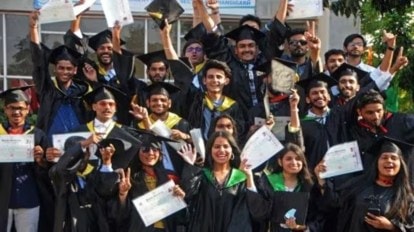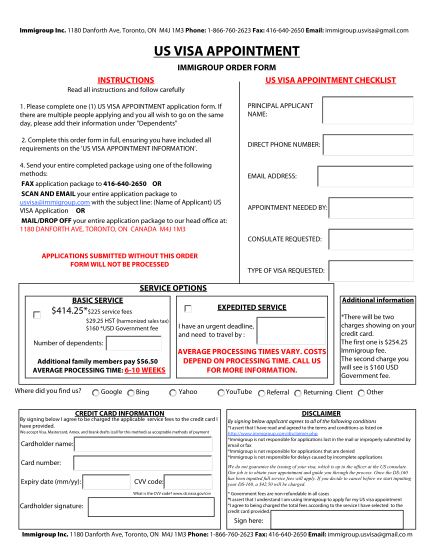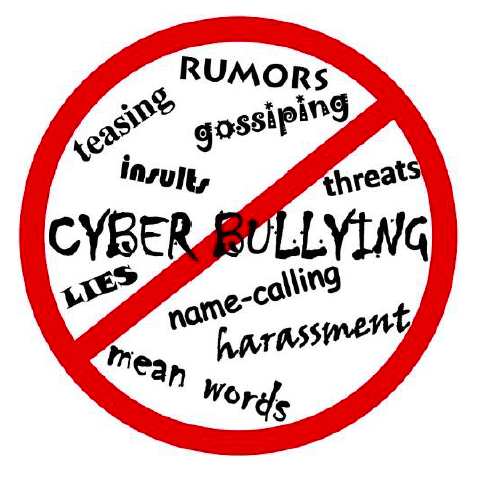The recent surge in online trolls targeting Indian visa holders has sparked widespread concern and debate. These trolls, often referred to as 'clog the toilet' trolls, have been flooding online platforms with derogatory comments and misinformation. Their primary target appears to be Indian nationals who are rushing to the United States, often for work, education, or family reunification.
This phenomenon has significant implications for individuals and communities affected by it. The trolls' actions can cause emotional distress, anxiety, and a sense of uncertainty among those who are already navigating complex visa processes. Moreover, the spread of misinformation can lead to confusion and mistrust among the general public.
Some of the key issues with these trolls include:
- Spreading false information about visa requirements and processes
- Using derogatory language and hate speech to target Indian nationals
- Creating a sense of fear and uncertainty among those seeking to travel to the US
- Undermining the integrity of online platforms and communities
The impact of these trolls extends beyond the online sphere, with potential consequences for international relations, cultural exchange, and economic cooperation. It is essential to address this issue and find ways to mitigate the harm caused by these trolls. By promoting greater understanding, empathy, and respect, we can work towards creating a more inclusive and supportive online environment for everyone.
The need to tackle this issue is pressing, and it requires a collective effort from individuals, communities, and authorities. By doing so, we can ensure that online platforms remain a safe and respectful space for people from all backgrounds and nationalities. This is crucial for fostering positive relationships, promoting cultural exchange, and supporting the free flow of ideas and information.

The 'Clog the Toilet' Troll Phenomenon
The term 'clog the toilet' refers to a tactic used by online trolls to overwhelm and disrupt online systems, making them unusable for their intended purpose. In the context of online trolls, this phrase has taken on a new meaning, where individuals intentionally submit large volumes of fraudulent or misleading information to clog up online application systems.
This phenomenon is specifically targeting Indian visa holders, who are being targeted by trolls attempting to slow down the visa application process. The trolls achieve this by submitting fake applications, which can lead to a significant increase in processing times and a higher likelihood of genuine applications being rejected.
Some examples of such instances include:
- Fake online profiles being created to submit visa applications, only to be abandoned or filled with incorrect information
- Multiple applications being submitted by the same individual, using different names or identities
- Applications being submitted with intentionally incorrect or misleading information, such as false employment or education details
- Trolls using automated scripts to submit large volumes of applications, overwhelming the system and slowing down processing times
These tactics can have serious consequences for genuine applicants, who may experience significant delays or even have their applications rejected due to the high volume of fake submissions. The impact of these tactics can be far-reaching, affecting not only the individuals applying for visas but also the overall efficiency of the application process.
In recent times, there have been numerous reports of Indian visa holders facing difficulties due to the 'clog the toilet' phenomenon. Many have taken to social media to express their frustration and disappointment, with some even reporting that they have been waiting for months or even years for their applications to be processed. The emotional and financial toll of these delays can be significant, highlighting the need for authorities to take swift action to address this issue.

Impact on Indian Visa Holders
The emotional and psychological impact on Indian visa holders can be significant. Many individuals who are awaiting a decision on their visa application may experience anxiety and stress due to the uncertainty of their situation. The fear of rejection or delay can cause emotional distress, affecting their daily lives and relationships. This emotional toll can be further exacerbated by the lack of transparency and communication from the relevant authorities.
Some of the common emotional and psychological effects on Indian visa holders include feelings of frustration, helplessness, and despair. The prolonged wait for a decision can lead to a sense of limbo, making it difficult for individuals to plan their lives or make important decisions. In some cases, the emotional impact can be so severe that it affects the individual's mental health, leading to conditions such as depression and anxiety.
Potential delays or complications in the visa process can be caused by various factors, including:
- Trolling or harassment on social media, which can lead to a slowdown in the processing of visa applications
- Inadequate or incomplete documentation, which can cause delays or even rejection of the application
- Changes in government policies or regulations, which can affect the eligibility criteria or processing times for visa applications
- Technical issues or system glitches, which can cause delays or errors in the processing of visa applications
These delays or complications can have a significant impact on the lives of Indian visa holders, causing emotional distress, financial losses, and disruption to their plans.
The role of social media in perpetuating this issue cannot be overstated. Social media platforms can be used to spread misinformation, fuel rumors, and harass or troll individuals who are awaiting a decision on their visa application. This can create a toxic environment, causing emotional distress and anxiety among Indian visa holders. Furthermore, social media can also be used to mobilize public opinion, putting pressure on the relevant authorities to make decisions that may not be in the best interests of the visa applicants. It is essential to address this issue and find ways to mitigate the negative impact of social media on the visa process.

US Visa Application Process
The process of applying for a US visa can be complex and time-consuming, but understanding the steps involved can help make it more manageable. The first step is to determine which type of visa is required, as there are many different categories, including tourist, work, and student visas. Each type of visa has its own specific requirements and application process.
The next step is to complete the online application form, known as the DS-160, and submit it along with the required fee. This form will ask for personal and background information, as well as details about the purpose of the trip and the applicant's plans while in the US. It is essential to fill out the form accurately and completely, as any errors or omissions can lead to delays or even rejection of the application.
The requirements and necessary documents for the application vary depending on the type of visa, but some common documents include:
- A valid passport with at least six months' validity
- A recent passport-sized photo
- Proof of payment for the application fee
- Proof of financial support, such as bank statements or income tax returns
- A letter explaining the purpose of the trip and the applicant's plans while in the US
These documents must be gathered and submitted along with the application form, and it is crucial to ensure that they are genuine and accurate.
The importance of genuine and accurate information in the application cannot be overstated. Any false or misleading information can lead to the application being rejected, and in some cases, may even result in the applicant being barred from entering the US. It is essential to be honest and transparent when filling out the application form and providing supporting documents. This includes disclosing any past immigration or visa issues, as well as providing accurate information about the applicant's employment, education, and personal history.
After submitting the application, the applicant will be scheduled for an interview at a US embassy or consulate. This is an opportunity for the applicant to explain their plans and provide any additional information that may be required. The interview is also a chance for the consular officer to ask questions and assess the applicant's eligibility for a visa. If the application is approved, the visa will be issued, and the applicant can travel to the US. If the application is rejected, the applicant will be informed of the reasons and may be able to reapply.

Combating Online Trolls and Harassment
As the internet continues to play a vital role in our daily lives, online trolls and harassment have become a significant concern for many individuals, including Indian visa holders. Protecting oneself from online abuse is crucial to maintaining a safe and healthy online presence. One effective strategy is to be mindful of the information shared online, avoiding posting sensitive or personal details that could be used to target or harass.
Setting boundaries is also essential in combating online trolls. This includes being cautious when engaging with strangers online, avoiding confrontations, and blocking or reporting abusive users. Indian visa holders can also take steps to secure their social media accounts by using unique and complex passwords, enabling two-factor authentication, and being wary of suspicious links or emails.
Social media platforms have a significant role to play in addressing online harassment. Many platforms have implemented policies and tools to prevent and report abusive behavior. For example, platforms like Facebook and Twitter have introduced features that allow users to report and block harassing accounts. Additionally, social media companies are working to improve their content moderation policies to reduce the spread of hate speech and online abuse.
To report and seek help against online abuse, Indian visa holders can utilize the following resources:
- National Cyber Crime Reporting Portal: a platform where users can report cybercrimes, including online harassment and abuse.
- Social media platform reporting tools: most social media platforms have built-in reporting features that allow users to report abusive accounts or content.
- Online support groups: organizations like the Cyber Civil Rights Initiative and the Online Harassment Field Manual provide support and resources for victims of online abuse.
- Local law enforcement: in severe cases of online harassment, Indian visa holders can report incidents to local law enforcement agencies for assistance and support.
It is essential for Indian visa holders to remember that they are not alone in combating online trolls and harassment. By being aware of the resources available and taking proactive steps to protect themselves, individuals can reduce their risk of being targeted and create a safer online environment. Furthermore, social media platforms and law enforcement agencies must continue to work together to prevent and address online abuse, ensuring that the internet remains a safe and accessible space for everyone.

Frequently Asked Questions (FAQ)
What is the 'clog the toilet' troll phenomenon?
The 'clog the toilet' troll phenomenon refers to a coordinated effort by online trolls to overwhelm and disrupt the online presence of Indian visa holders. This phenomenon has been observed in various online platforms, including social media and forums. The primary goal of these trolls is to create chaos and disrupt the normal functioning of online communities.
The tactics used by these trolls include flooding online platforms with spam messages, creating fake accounts, and reporting legitimate users for harassment. This can lead to the suspension or termination of accounts, causing significant inconvenience to Indian visa holders who rely on these platforms for communication and information.
Some of the key characteristics of the 'clog the toilet' troll phenomenon include:
- Coordinated efforts: The trolls often work together to launch a massive attack on online platforms, making it difficult for moderators to keep up with the influx of spam messages and fake accounts.
- Targeted harassment: The trolls specifically target Indian visa holders, using derogatory language and hate speech to intimidate and silence them.
- Use of bots: The trolls often use automated bots to spread spam messages and create fake accounts, making it difficult to distinguish between legitimate and fake users.
The impact of the 'clog the toilet' troll phenomenon can be significant, causing frustration and anxiety among Indian visa holders who are simply trying to navigate online platforms. It can also lead to a breakdown in online communities, making it difficult for people to communicate and share information. As a result, it is essential to develop effective strategies to counter these trolls and maintain a safe and respectful online environment.
The online community can play a crucial role in mitigating the effects of the 'clog the toilet' troll phenomenon by reporting suspicious activity, using blocking features, and promoting respectful dialogue. By working together, it is possible to create a more inclusive and welcoming online environment, where everyone can feel safe and valued.
How can Indian visa holders protect themselves from online trolls?
As an Indian visa holder, navigating online spaces can be a complex and potentially hazardous experience. Online trolls often target individuals from diverse backgrounds, and it is essential to be aware of the risks and take proactive steps to protect oneself.
Being cautious with online interactions is crucial. This involves being mindful of the information shared online, avoiding engagement with suspicious or hostile individuals, and being respectful in online conversations. By being vigilant and thoughtful in online interactions, Indian visa holders can reduce their risk of being targeted by trolls.
Reporting abuse is another critical step in protecting oneself from online trolls. Most social media platforms have mechanisms in place for reporting harassment, hate speech, and other forms of online abuse. Indian visa holders who experience online trolling should report the incident to the relevant platform, providing as much detail as possible.
Some key steps to take when reporting abuse include:
- Documenting the incident, including screenshots and URLs
- Reporting the abuse to the social media platform
- Reaching out to support groups or authorities if necessary
Seeking help from social media platforms and support groups is also vital. Many social media platforms have dedicated teams that handle reports of online abuse and provide support to affected users. Additionally, there are numerous online support groups and forums where Indian visa holders can connect with others who have experienced similar situations, share their stories, and receive guidance and advice. By seeking help and support, Indian visa holders can build a network of allies and advocates who can help them navigate the challenges of online trolling.
Ultimately, protecting oneself from online trolls requires a combination of awareness, caution, and proactive action. By being mindful of online interactions, reporting abuse, and seeking help from social media platforms and support groups, Indian visa holders can reduce their risk of being targeted and create a safer, more supportive online environment.
Is the US visa application process affected by online trolling?
The US visa application process is a complex and multifaceted system, designed to evaluate applicants based on their eligibility and merit. While online trolling can cause emotional distress and potentially lead to delays, it is essential to understand that the process is designed to be fair and unbiased. The US government has implemented various measures to ensure that the application process is not affected by external factors, including online trolling.
One of the primary concerns regarding online trolling is its potential to cause emotional distress to applicants. This can be particularly challenging for individuals who are already anxious about the application process. However, it is crucial to note that the US visa application process is designed to evaluate applicants based on their eligibility criteria, rather than their online presence or social media activity.
The evaluation process is based on a set of predefined criteria, including:
- Eligibility for the specific visa category
- Qualifications and experience
- Financial resources
- Intent to return to their home country
These criteria are used to assess the applicant's qualifications and eligibility, regardless of any online activity.
In cases where online trolling may potentially impact the application process, it is often due to delays or additional scrutiny. For example, if an applicant is the subject of online harassment or misinformation, it may be necessary for the authorities to conduct additional background checks or verify the information provided. However, this does not necessarily mean that the application will be rejected or that the applicant will be unfairly treated.
It is essential for applicants to remember that the US visa application process is designed to be fair and impartial. While online trolling can be a challenge, it is not a determining factor in the application process. Applicants should focus on providing accurate and complete information, and ensuring that they meet the eligibility criteria for their specific visa category. By doing so, they can minimize the risk of delays or complications and increase their chances of a successful application.




